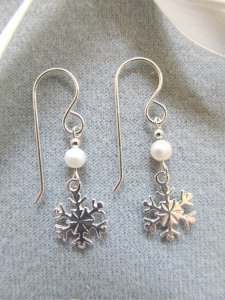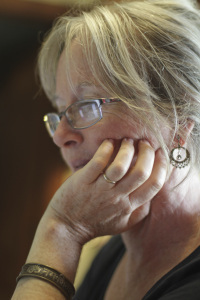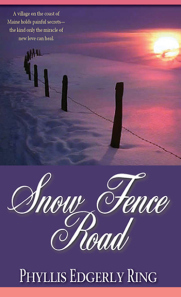Phyllis Edgerly Ring's Blog, page 46
December 12, 2013
Can we be as smart as our cells?
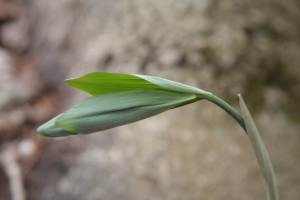
Photo: Saffron Moser
When I was young, I had to choose between the life of being and the life of doing. And I leapt at the latter like a trout to a fly. But each deed you do, each act, binds you to itself and to its consequences, and makes you act again and yet again. Then very seldom do you come upon a space, a time like this, between act and act, when you may stop and simply be. Or wonder who, after all, you are. ~ Ursula K. Le Guin
These ponderings of Le Guin’s prodded my own: What if experience only reflects “life” when we’re as completely present to the moment as possible? And what if that can only happen if we’ve had adequate periods of rest and reflection?
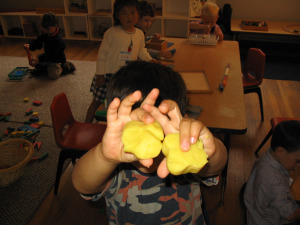
Photo: Vanessa Jette
In her book, Cellular Wisdom: Decoding the Body’s Secret Language, neuroscientist Joan C. King came to the conclusion that what she’d been studying under a microscope over two decades of research at Tufts University had significance beyond simple anatomy and physiology. Her up-close observation of cells led to the discovery that the keys to balance and well-being are written right into them, and modeled for us in the ways that both cells and our various body systems act and interact.
She proposes that just as each cell functions from a nucleus or center, so our human design intends that we live from some sort of core or center in order to be healthy and whole. Cells need to be connected with their center, and the same seems to hold true for us.
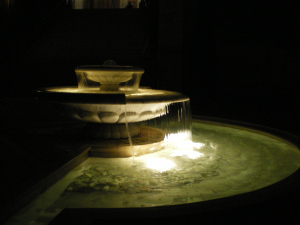
Photo: Nelson Ashberger
The rhythm of cell life is cyclical. They routinely go “on” and “off.” They experience periods of significant output or expenditure of energy, then immediately shift over into a “refractory” period during which they rest and gradually accumulate energy and resources in preparation for their next expenditure. Cells have no choice but to rest. Their innate wisdom abides by this requirement of healthy function.
Humans often skip this part of the cycle, though it’s as much a part of our design as it is that of our cells, says King. Genuine rest and re-creation (to break the word down to its intended roots) are what help us have the capacity to access our core, our greatest source of strength. Without a rest cycle, we have little opportunity make use of this, or of that other power tool, learning from our experience by reflecting upon it. It’s the “resting” phase of our design cycle that gives us the time and space to reflect.
King’s discoveries about cellular activity point out a lot of other instructive patterns within cellular behavior. Beyond the individual level, cells only fulfill their highest potential when they connect with other cells. We, too, tend to achieve our highest purposes when functioning in relationship with others.
In its evolution, the human body, at the cellular level, has also adopted principles of moderation, diversity, and even compassion to help maintain its survival. How willing are we to learn from it with humility, apply its wisdom, and do the same? 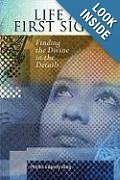
Adapted from:
Life at First Sight: Finding the Divine in the Details –


December 8, 2013
Winter in a kinder world – Giveaway Week 4
http://www.etsy.com/shop/dkirkupdesigns
Winner’s choice of winter beauty in this week’s giveaway –
from these designs by New Hampshire artist Diane Kirkup.
To enter, simply comment on any post here
at the blog, or send an email to info@phyllisring.com
 As the Winter Solstice approaches, I love hearing from readers of Snow Fence Road, a tale with its share of wintry weather and scenes. A year ago today, after what can only be described as a forceful, invisible nudge, I tried my luck with the kind publisher I’m forever grateful has published this story. Black Lyon Publishing has a whole lot of offerings for this and every season — and a fun video taste of holiday spirit at: http://www.youtube.com/watch?v=9OCtOUespkY&feature=youtu.be
As the Winter Solstice approaches, I love hearing from readers of Snow Fence Road, a tale with its share of wintry weather and scenes. A year ago today, after what can only be described as a forceful, invisible nudge, I tried my luck with the kind publisher I’m forever grateful has published this story. Black Lyon Publishing has a whole lot of offerings for this and every season — and a fun video taste of holiday spirit at: http://www.youtube.com/watch?v=9OCtOUespkY&feature=youtu.be

Photo: Saffron Moser
One reviewer’s words about the book and its story struck a chord for me, this week:
“One of the things I also enjoyed was that this took place in a kind world, with supportive and loving folks, despite their past difficulties, even with each other.”
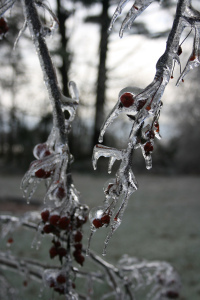
Photo: Saffron Moser
That’s the reason I write at all, from the stubborn belief that this is the kind of world that all of our hearts want, and can all help bring into being.
And from one of my heroes, naturalist and writer John Burroughs, comes a taste of “Winter Sunshine”, which encapsulates so perfectly this quieting season when every one and every thing prepares for rest and restoration:
“It is a spur that one feels at this season more than at any other. How nimbly you step forth! The woods roar, the waters shine, and the hills look invitingly near. You do not miss the flowers and the songsters, or wish the trees or fields any different, or heavens any nearer. Every object pleases…. the straight light-gray trunks of the trees… how curious they look, and as if surprised in undress.”


December 6, 2013
Rest-oration: A different kind of meeting place

Photo: David Campbell / GBC Tours http://www.gbctours.com/
“Rest is the conversation between what we love to do and how we love to be.
“Rest is not stasis but the essence of giving and receiving.
“Rest is an act of remembering, imaginatively and intellectually, but also physiologically and physically.

Photo Credit: David Campbell / GBC Tours http://www.gbctours.com/
“To rest is to give up on worrying and fretting and the sense that there is something wrong with the world unless we put it right;
“to rest is to fall back, literally or figuratively from outer targets, not even to a sense of inner accomplishment or an imagined state of attained stillness, but to a different kind of meeting place, a living, breathing state of natural exchange …”
~ David Whyte


December 3, 2013
The alms of our own kindness
Gleanings found here and there:

Ramsau
Photo: David Campbell / GBC Tours
http://www.gbctours.com/
The most beautiful people we have known are those who have known defeat, known suffering, known struggle, known loss, and have found their way out of the depths. These persons have an appreciation, a sensitivity, and an understanding of life that fills them with compassion, gentleness, and a deep loving concern. Beautiful people do not just happen.
~ Elisabeth Kübler-Ross
Bernhard Kretschmar’s “Tram”, part of collection of art cache recently uncovered in Munich.
That I feed the hungry, forgive an insult, and love my enemy…. these are great virtues! But what if I should discover that the poorest of the beggars and the most impudent of offenders are all within me, and that I stand in need of the alms of my own kindness; that I myself am the enemy who must be loved? What then?
~ Carl Jung


November 30, 2013
When giving is receiving

Painting: “Wings of Freedom”
from Diane Kirkup / D. Kirkup Designs.
One year as the December holiday season approached, life gave me a precious experience in giving. One of the very last things I’d bought for my father the previous year was a Christmas tree. He’d been struggling to make peace with entering assisted-living care as he also entered the final months of his life. I was feverishly trying to create Christmas around him – in fast-forward — while my heart seemed to be simultaneously breaking in half.
My daughter helped me find an artificial tree, the very last one the store had, with twinkling tiny lights already attached. After my father died the following June, that tree and the box it came in got stockpiled, along with many other things I wasn’t ready to face quite yet. Finally, as the next Christmas neared, I knew it was time to pack it up, along with other things I needed to bring to the thrift shop. But it was very, very hard to think about taking it there.
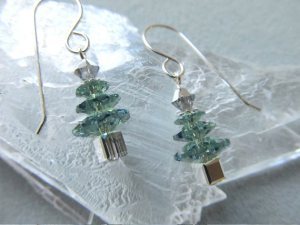
CHRISTMAS TREES GIVEWAY – Win these sweet trees from designer D. Kirkup Designs.
Through Dec. 13, comment on any post at this blog or email info@phyllisring.com to be entered in a drawing to win these and a signed copy of Life at First Sight: Finding the Divine in the Details, where this story first appeared. See more of this artist’s lovely work at: http://www.etsy.com/shop/dkirkupdesigns
The following day, I drove a car packed to the gunwales to the local secondhand thrift store, feeling the weight of the grief and sadness that had been stirred by sorting through so many of my father’s things.
Then as I was unpacking the tree from my car, they magically appeared — a kind-faced young man with his little girl clutching his hand. They came up to me tentatively and asked very politely whether, if I planned to leave the tree there anyway, it might be OK for them to take it.
I hugged them both spontaneously then said that, of COURSE, I knew that it would delight my father if they were to have it, and I hoped that they were going to have an absolutely wonderful Christmas. The best they’d ever had.
Then I noticed the woman who was with them, standing off to the side. I was thinking that they all must think me crazy when she gave me a warm smile and thanked me, and then the other two, still a bit stunned by my response, began thanking me, as well. Her smile reminded me of my mother’s, I have to say.
In a little book called “The Hidden Words,” Baha’u'llah says of divine design, “To give and to be generous are attributes of Mine.”

BUY BOOK HERE:
http://www.amazon.com/Life-First-Sight-Finding-Details-ebook/dp/B00B5MR9B0/ref=tmm_kin_swatch_0?_encoding=UTF8&sr=8-1&qid=1385482351
What a gift it is to us when life allows our giving to be the precise answer to someone’s need.
From Life at First Sight: Finding the Divine in the Details
Through Dec. 13 – Enter to win the trees pictured above and a signed copy of the book. Leave a comment on any post, or send an email to info@phyllisring.com.
TWO WINNERS WILL BE DRAWN, ONE DEC. 7 AND THE SECOND DEC. 14.
See more of Diane Kirkup’s work at: http://www.etsy.com/shop/dkirkupdesigns


Staying the course
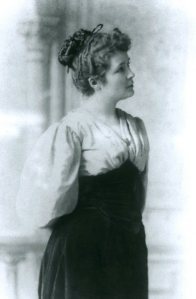 Sometimes, as one friend has described, we’re simply “riding the donkey”. Decades ago, this was how one got from one place to the next and in many places, it still is. It could be tedious. It can be tiresome, taxing of heart and testing of patience — even of confidence and faith, when the going is especially slow. Eventually, inevitably we all face such biding and abiding (ask any pregnant mother). Ideally, we make peace with it, yield to receiving what it brings – what our own ideas and designs often chafe against.
Sometimes, as one friend has described, we’re simply “riding the donkey”. Decades ago, this was how one got from one place to the next and in many places, it still is. It could be tedious. It can be tiresome, taxing of heart and testing of patience — even of confidence and faith, when the going is especially slow. Eventually, inevitably we all face such biding and abiding (ask any pregnant mother). Ideally, we make peace with it, yield to receiving what it brings – what our own ideas and designs often chafe against.
A heroine of mine, Marion Jack, learned a lot about this. When I need inspiration for staying the course, going the distance, perhaps when I most want to quit, I remember what her life demonstrates about accepting this price of some of life’s most valuable outcomes, even though our urge may be to flee, dodge, or fight.
Marion stayed the course, consciously, willingly in very trying times, and places. One was Nazi-occupied, and filled with treachery. She could have left – she had opportunity. She chose to stay for others’ sake, and for commitments she’d made. 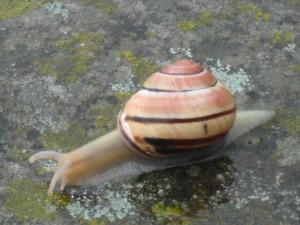
“As I have the capacity of suffering much, so I also enjoy much,” she once observed. She also noted with real pleasure, “It seems wonderful, what one can do without.”
Other words of hers hit close to home: “Each one has his own little work to fill in the great scheme of things. Mine seems to be to work quietly in new fields or in assisting the real [workers]. So I always think it wisest to try and do one’s own work and not think of attempting the line of other people.”
She was well-experienced with riding life’s donkey. I imagine her as thankful for the steps it covered on her behalf, however much the movement may have sometimes seemed backward. Or, at best, like treading in place. She didn’t forget that, whatever circumstances felt like around her, she was being carried. And no matter what she could see, things were advancing. Often, the biggest of those was love, just as the real means of their advance was love, too. She knew from experience that the pace that took, even when it resembled a donkey’s, was always exactly right.


November 28, 2013
Cured of any expectations
Delighted to share a story at BoomerCafé in this holiday week:
The Thanksgiving ham from hell
by Phyllis Edgerly Ring
Expectations embed deeply in us, through the decades of holiday meals.
After several rather horrific ones, my friend Nadine hatched a plan to host the perfect holiday feast, a chance to record new memories over tapes of earlier nightmares.
She planned a menu with enough side dishes, vegetables, baked goods, appetizers and desserts to make any table groan.To top it all off, she decided to surprise her New England guests with the very last thing they’d ever expect — a genuine Southern ham.
Her mouth watered as she recalled the delicious thin slices that had accompanied carbohydrate-dense breakfasts she’d been served down South. Wouldn’t her guests be surprised and delighted when she served this special treat? 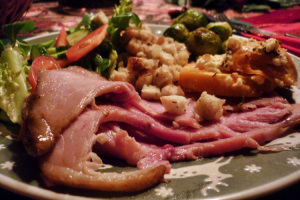
She’d invited about a dozen of them and knew she’d have to invest a little to accommodate such a crowd. Turned out to be a considerable investment indeed — $65 alone for the 25-pound beauty that would be the table’s centerpiece.
Imagine her surprise when the ham arrived, packed in a burlap sack inside its shipping box, and was the most remarkable (and repugnant) shade of … green. Read the rest here: http://www.boomercafe.com/2013/11/28/18330/

BUY BOOK HERE:
http://www.amazon.com/Life-First-Sight-Finding-Details-ebook/dp/B00B5MR9B0/ref=tmm_kin_swatch_0?_encoding=UTF8&sr=8-1&qid=1385482351
Excerpted from Life at First Sight: Finding the Divine in the Details (link below).
Subscribe to BoomerCaf
é updates at: http://www.boomercafe.com/
November 25, 2013
Thank you, ‘Abdu’l-Bahá
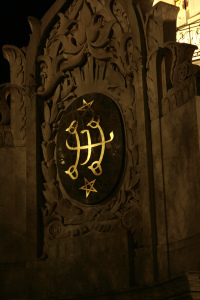
Detail, Shrine of The Báb, Haifa, Israel.
Photo: Nelson Ashberger
I think a lot about gratitude each November, of course. I’m also reflecting on the relationship between gratitude and generosity — between thanks and giving. Recent experience is suggesting to me that the more you consciously cultivate one, the more you automatically intensify the other.
Nowhere is this personified for me more thoroughly — and inspiringly — than in the life of someone who also comes to mind for me around the end of November. That’s because Nov. 26 and 28 are dates associated with events in the life of ‘Abdu’l-Bahá, whose father, Bahá’u'lláh, was the prophet founder of the Bahá’í Faith.
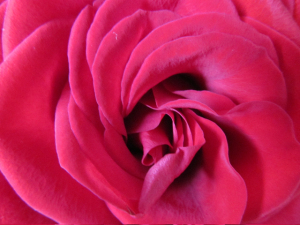
Photo: D Kirkup Designs
Picture someone who consistently put others before himself and exuded remarkable happiness while doing so, and you have a rough idea of why so many loved ‘Abdu’l-Bahá so much. From 1853 until 1910, from the time he was 9 until his late 60s, he was more or less a prisoner, together with the rest of his family. That was because the things his father suggested about what would remedy humankind’s ills never found much favor among those who held positions of power and authority. As one source put it, “They didn’t find their personal interests advanced by his teachings.”
Stories about ‘Abdu’l-Bahá play a key part in the life of Bahá’í families because he exemplified precisely what a life would look like when guided entirely by spiritually motivated choices. His actions illustrate in a concrete way the very qualities that his father urged humanity to explore, develop and, perhaps most important of all, apply.
In raising our children, we found no better example to turn to when looking at questions of spiritual integrity. This was so much the case that the question we typically found ourselves asking in the face of many challenges was, “What would ‘Abdu’l-Bahá do?”
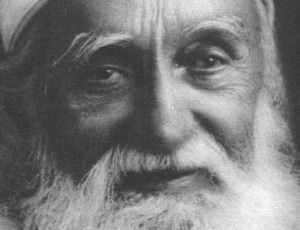
‘Abdu’l-Bahá, 1912, Dublin, New Hampshire, US
Once he was finally free in 1910, he began a three-year journey through Europe and the United States. His goal was to impart what his father had brought, a light that illuminated ‘Abdu’l-Bahá’s own path so brightly that even those who had declared themselves his enemies eventually arose to love and protect him.
One story about him remains my favorite because it illustrates both literally and symbolically just what sort of person he was. It occurred when he was probably about 6, at a time when his family, who had descended from nobility, still had wealth. (A few years later, it would be seized by the government and they would all become exiles.)
On the day in question, ‘Abdu’l-Bahá was sent out with an adult companion to inspect the work of the shepherds tending his father’s sheep. When the inspection was finished and he turned to leave, the man who had accompanied him said, “It is your father’s custom to leave a gift for each shepherd.”
‘Abdu’l-Bahá grew quiet for a while. He hadn’t known or expected this — and what would he give them?
Then an idea came to him that made him very happy. He would give them the sheep!
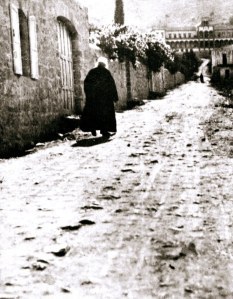
Abdu’l-Bahá walking in Haifa, Israel, early 1900s.
When his father heard about this, he was, rather than angry or displeased, absolutely delighted with this early evidence of truly spontaneous generosity. He humorously remarked that everyone had better take good care of ‘Abdu’l-Bahá, because someday he would give himself away.
And that is exactly what history shows that he did, over and over, all while bringing joy everywhere he went.
Although I’m a long way from emulating that myself, I do know that gratitude and generosity are two prime factors in the equation I believe can – and will — help heal a whole world. 
Excerpted from:
Life at First Sight: Finding the Divine in the Details,
available here: http://www.amazon.com/Life-First-Sight-Finding-Details/dp/1931847673/ref=sr_1_1?ie=UTF8&qid=1385394942&sr=8-1&keywords=Life+at+First+Sight


November 23, 2013
Snow Fence Road – a gift for Thanksgiving
Well, I am extra thankful in this Thanksgiving week. Amazon has decided to offer the Kindle version of my novel, SNOW FENCE ROAD, for free as a download through this Wednesday, Nov. 27.
One of the nicest experiences I ever had as a writer was to give away copies of my book at Book Expo America in New York back in 2009.
Now, you can help me do that again. Download at the link below, and invite your friends and family to do the same:
And Julie Bond Genovese, one of my favorite authors, thanks for these very kind words you left in the reviews:
A story to reboot your heart:
Snow Fence Road, a beautiful love story, moves in twists and turns from unthinkable loss toward healing and redemption. Although grief holds the characters hostage, forgiveness and letting go allows hope to return. Phyllis Edgerly Ring is a writer of compassion, depth and brilliant imagery. I could feel that brisk Maine snow smacking my face as I careened right through this story. The atmosphere and mood, suspense and danger, kindness and courage will reboot your heart with this – life won’t leave you wanting and Love won’t ever give up.


November 20, 2013
A sistership of only-child hoods
What a pleasure to share a Guest Post this week from one of my favorite writers, who just happens to also be my closet relative. 
The Note and the Nail-Bite
by Tracey Edgerly Meloni
 Barefoot, I stepped on a nail the night my sister was born. To this day, the damned thing can throb like hell with little provocation.
Barefoot, I stepped on a nail the night my sister was born. To this day, the damned thing can throb like hell with little provocation.
We were both only children, she and I. Born ten years apart, we shared six pretend years together, me playing the part of long-suffering-if-resentful babysitter to my not-really mutinous barnacle charge. It wasn’t cool to let friends, or (God forbid!) parents, know that from the moment she arrived (late, as would be her course through life, a yin to my neurotically early yang), I was besotted. She had a little squished heart-shaped face and liked to head-butt. She was tawny, golden, trusting, with starfish-shaped hands, her eyes navy blue lapis put in by some god with sooty fingers. I heard my orders from a Higher Power, beyond parents, to guide this little person safely past the treacherous shoals of childhood.
I felt almost apologetic for my own childhood, which I viewed (correctly) as an enormous household inconvenience, something to be conquered quickly and forgotten, like chicken pox or diarrhea. With the arrival of “Phylsey,” as she was nicknamed, I seized the opportunity to Be Older, taking charge of her needs, protecting her from my own tadpole experience. 
Phylsey hardly ever spoke – she relied on me to interpret for her. “Mocha, mocha, mocha” meant “milk”; “Munga, Munga, Munga” meant “Morgan”, the forlorn, floppy and filthy stuffed dog toy that accompanied her everywhere.
But suddenly I was 17, ignorant of the havoc casually wrought by Life’s selfish mistress, Change. After graduation from Würzburg American High School in Germany, college and a scholarship beckoned an ocean away. Of course I went, and eagerly — I was even impatient at the sight of Phylsey’s sad little face on the dock in Bremerhaven, Germany, waving a tentative goodbye as my ship prepared to sail. Before I boarded, she pressed a note into my hand, with the solemn admonition not to open it until I was “home.”
Once at sea, I made a valiant effort to put them all out of my mind and have some fun. There were 22 of us going home to college alone, 11 boys, 11 girls, 10-day voyage – groovy!
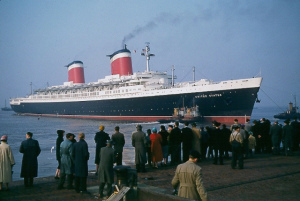 My memories of the trip are both clear and chaotic – some of them flow along in order and others are seen through a tumbling kaleidoscope. Diane, one of my roommates, decided she had fallen in love on board with a guy named Dave. She gave him a copy of her graduation picture signed “Love, Diane.” Wouldn’t you just know he ended up rooming next door to her old boyfriend at Johns Hopkins – one of them broke the other one’s nose, but I forget who won.
My memories of the trip are both clear and chaotic – some of them flow along in order and others are seen through a tumbling kaleidoscope. Diane, one of my roommates, decided she had fallen in love on board with a guy named Dave. She gave him a copy of her graduation picture signed “Love, Diane.” Wouldn’t you just know he ended up rooming next door to her old boyfriend at Johns Hopkins – one of them broke the other one’s nose, but I forget who won.
Me, I met a guy named Ray, on his way to pharmacy school. How we were smart enough to know that we wanted to be just friends I’ll never know, but we did. There were teen dances every night in a little-used function room. Turned out Ray and I danced together brilliantly – we won every contest.
We also were the only souls who made it to dinner one night, as the ship crashed through the remnants of a tropical storm in the turbulent Atlantic. Like me, Ray just got hungry. Our respective roommates were moaning below, and we quickly learned to stay away from them. 
We all played hearts most afternoons, a game I’d never played before and don’t remember now. But on that crossing into a new life, I could not lose.
On the last night, we had a talent show, a final, frenetic burst of bravado, none of us wanting to think about what lay ahead. I forget what my act was.
In the morning, no one said goodbye. We just drifted to our respective planes and trains. Ray took me to my train. On the way, we passed a sign for Würzburger Hofbrau Beer and had our picture taken by it. Then he waved me aboard, and was gone.
Suddenly I was as alone as I have ever been. Home to a “brat” meant wherever Dad’s assignment took us, whatever friends rotated in with us. Thirty minutes after the movers left, Mum made wherever we lived home in a way that had nothing to do with neighborhoods and permanence. Now I, who graduated with a class of only 30 after more than a dozen moves, was going to be one of 25,000 full-time students, most of whom had spent their whole lives with the same friends in one town. 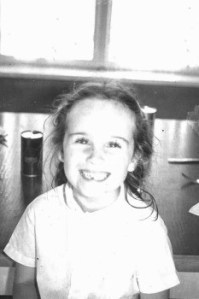
The “nail bite”, as I called my foot-wound that ushered my sister into the world, throbbed, making me rub it and think of her little face, now wearing owlish glasses that magnified her already-huge eyes, her gap-toothed smile always at the ready for me.
I remembered her note and opened it. A 6-year-old’s unschooled scrawl said just:
“Rite Sune.”
And I was home.
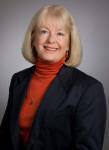 Writer Tracey Edgerly Meloni won first prize in Ingenue Magazine’s short-story contest when she was 14 and just kept on writing. Her most recent award is a first place in feature writing from the Virginia Press Association.
Writer Tracey Edgerly Meloni won first prize in Ingenue Magazine’s short-story contest when she was 14 and just kept on writing. Her most recent award is a first place in feature writing from the Virginia Press Association.
Formerly press secretary to three California Congressmen and Virginia’s senior Senator, she contributes regularly to several magazines, writing about food, health, the arts, and travel.
Her sister, formerly known as “Phylsey”, happens to know that she’s also one fine cook of elegant, irresistible vegetarian cuisine.



